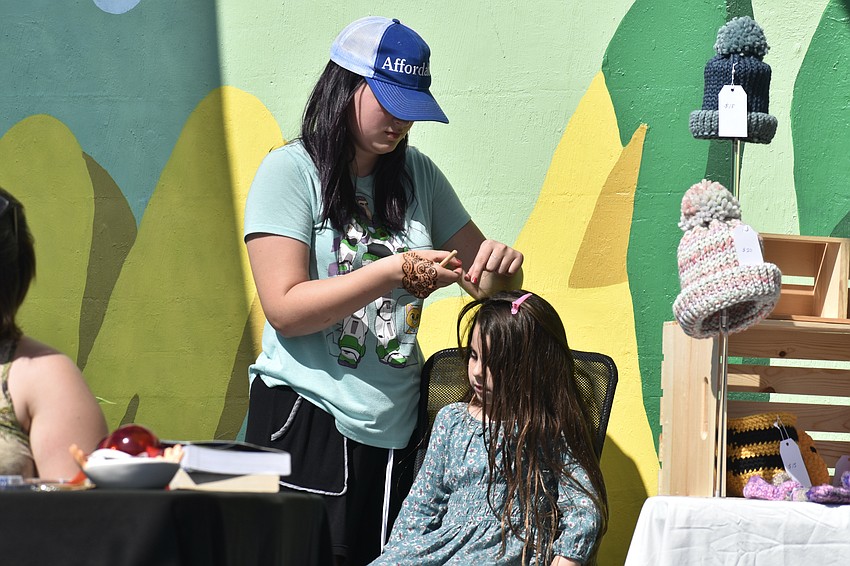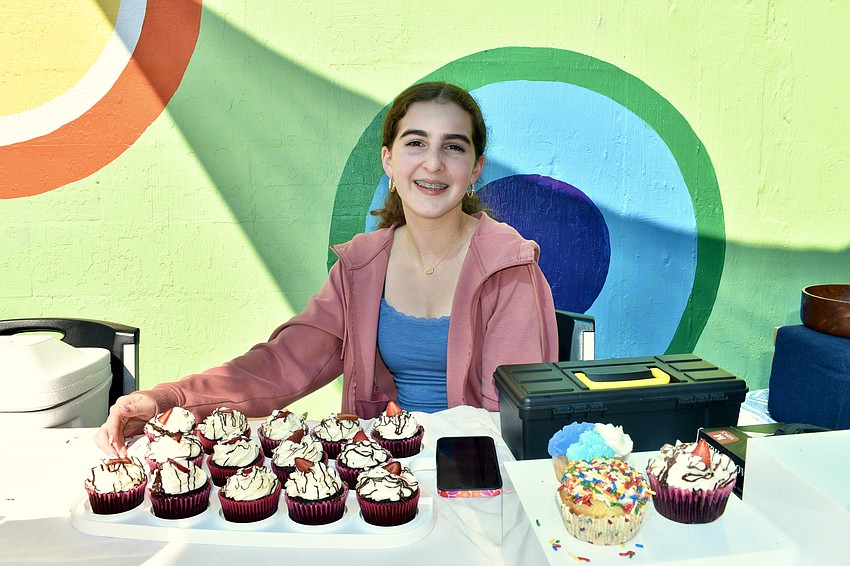- May 9, 2025
-
-
Loading

Loading

Is social media a benefit to teens or a net harm?
According to 2022 data from Pew Research Center, adolescents who were surveyed reported their online experiences as an overall benefit to their lives, with 32% calling the impact “mostly positive” and 9% calling it “mostly negative.”
On the other hand, there are some who would prefer to see those activities prohibited for most teens.
A bill recently passed by the Florida House would prohibit anyone under 16 from creating a new social media account, as well as require platforms to delete existing accounts “reasonably known” to be held by those under 16, using age verification conducted through an independent party.
But the bill has met resistance, with one critic being Gov. Ron DeSantis, who has voiced concerns about legal issues stemming from the bill.
The Observer decided to explore what residents of Sarasota thought of the legislation.
The individuals who were interviewed gave a unanimous response: The decision should be left up to individuals.
Some younger individuals in Sarasota’s community are using social media in ways that defy stereotypical notions.
Lily Freeman, 13, found that it has boosted the success of her business, Fairy Hair Done Right, through which she offers temporary hair highlights, as she has found it useful for obtaining and contacting clients and finding events.
One event she attended was the Young Entrepreneur Market at The Bazaar on Apricot & Lime on Feb. 10.

“My first thought about it is really it’s the parent’s choice,” she said. “I don’t think it should be a bill, but it is what it is.”
Other teen entrepreneurs at the event also offered their input.
Jude Shaqiri, 13, of Ditzorted WireZ, was adamant that the bill was not in the best interests of teens.
“The bill is not necessary and should not be turned into a law,” Shaqiri said. “I think it’s really inappropriate because teens should be allowed on social media. They get to socialize with their friends. There are a lot of things that are a positive influence on teenagers, and social media is not always negative.”
Shaqiri also noted mental health resources in the community and said more people need to be aware of these, while parents need to also ensure their children are mentally well.
Some teens, while finding social media platforms useful for their business, were still wary of their potential negative aspects.
Quinn Saladino, 14, said whether to use social media or not, is ultimately each family’s decision.
He said his mother sometimes uses it to advertise his business but that he also relies on many connections in the community, including ones from events like the market, something which is also extremely helpful.
“I really think it’s about how every family works,” he said. “Some people are OK with it, some aren’t. There’s some stuff kids shouldn’t see, but I do think it helps business-wise; it brings you into the community. That’s a good thing.”
Hanna Reeher, 13, of Hannabakes, said she thinks parents should limit the ways in which their kids use social media platforms, although she still finds social media useful for her business.

Reeher bakes gluten-free treats, and through social media, she can reach people within her specific market that she otherwise couldn't.
However, she chooses not to include a photo on social media platforms.
“Some kids are using it and don’t need to be, but I think for business it actually helps a lot,” she said.
Ariel Rischer, 12, of Dancing Star Beads, said she thinks social media can affect teens negatively if they are using it often and are not “in the real world.”
She said, “I also love social media,” noting she uses it for reasons including her business as well as other activities she is involved in.
Adults in the community echoed the comments of the younger individuals.
Robert Klinger, whose grandson is 11-year-old Holden Clark, one of the market’s young entrepreneurs, said he was concerned about the banning of books and the limiting of social media freedom for kids.
“I think they're a little bit confused, some of those people who talk about parents’ rights,” he said. "I think parents are smart enough to decide for their kids — most of them anyway. They talk about disruptors in business. … Young people are the ones coming up. If they can afford to live in Sarasota, will the government give them the freedom to start a business and disrupt?”
Other adults were also less than enthusiastic about the idea.
“I think parents should control it, not the state,” said Francine Rosenberg. “I think that should be the parents’ responsibility.”
“I think there has to be some kind of regulation, but I don’t know if it’s for the government to regulate,” said Jason Roger. “I think it’s the responsibility of the parents to raise their kids. The parents have to have the pulse of their kids and know what’s going on in their lives. The thing for me is we don’t need more government. We need better government.”
Roger said he thinks parents should have the ability to see the activities of their kids on social media.
“That’s where we should start if we’re going to regulate it,” he said.
Another resident, Mark Gerzewski, questioned the feasibility of the regulations, saying he doesn’t think that age restrictions would pose a barrier to teens.
“It seems ridiculous,” he said. “How do you do that? I find that unlikely and think it would be unsuccessful. Kids are really clever. … We have a lot of things we’re trying to supersede the parents in. Let’s let them figure it out.”
Mark Folts, who called himself a “Constitution guy,” said he would “probably” be opposed to any legislation in the area, one way or another.
He does think it is a case where parents may be justified in restricting a child’s freedom.
“I hate taking a right away from anybody,” he said. “On the other hand, I see what social media is doing to kids. I don’t know what to say about it.”
He noted that he allowed his own, now grown, children to have phones in junior high school.
“It was our decision,” he said. “If you don’t want your kid to use Facebook, don’t buy them the equipment to do it.”
Even Tampa attorney Matthew Dolman, who specializes in representing families suing social media sites and who founded Dolman Law Group, has his doubts about the legislation.
“Do I like (social media)? No. Do I think it should be banned? Yeah. Do I think it would survive judicial scrutiny? No,” he said.
While describing social media platforms as “a wealth of information” Dolman said their benefits are outweighed by their many harmful impacts.
Any piece of legislation would have to be “narrowly tapered” to the situation to avoid being overturned, as case law tends to favor freedom of speech, according to Dolman.
He said for him, determining how this could be achieved is still a work in progress, since not everyone under 16 is equally capable of using social media safely.
Dolman said a look at history shows similar efforts not panning out well. Social media legislation in Utah, he noted, was challenged by civil liberties organizations, with its effective date being repeatedly postponed.
“I think there should be legislation, I just don’t know how it could be applied across society,” he said.